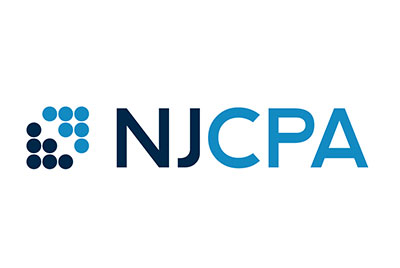DISASTER RECOVERY GUIDE
New Jersey Releases First "Plain Language" Summary of Fiscal Health as Required in Law Drafted by NJCPA and NJBIA
–
May 27, 2025

Annual Comprehensive
Financial Report Summary is User-Friendly
New Jersey State Auditor David J. Kaschak released the state's first summary of its Annual Comprehensive Financial Report (ACFR) in April, after legislation drafted by the New Jersey Society of CPAs (NJCPA) and New Jersey Business & Industry Association (NJBIA) was passed to create a more transparent understanding of the state's overall financial health.
The fiscal transparency bill (S-1884/A-4090), which was signed into law by Governor Murphy’s Administration in 2023, requires the State Auditor to produce an annual summary of the more than 400-page ACFR that is more reader-friendly to lawmakers, the media and general public. The new 40-page summary shows government-wide financial data, comparisons with other states, anticipated revenue versus original appropriations and economic and demographic data as well as provides accounting definitions. The summary was pulled from ACFRs from fiscal years 2020 through 2024.
The new bill also requires the state auditor to testify about the ACFR before the Senate and Assembly budget committees. The lengthy ACFR contains important items not covered by the annual budget, such as unfunded liabilities, debt and spending, and financial information on the state’s independent authorities. It uses technical accounting language and does not include statistical comparisons of key items to comparable states that would help to put the state’s fiscal health in perspective.
“Having a more transparent picture of the state's finances is crucial for business leaders, taxpayers and lawmakers so they will all be able to make informed decisions. Keeping New Jerseyans abreast of key tax and revenue issues enables the state to remain a desirable place to live and do business,” said Aiysha (AJ) Johnson, MA, IOM, CEO and executive director of the NJCPA.
The ACFR summary showed the following financial stats for New Jersey:
- New Jersey's fiscal year 2024 concluded with a negative net position of $158.7 billion for the primary government. When compared to other states in the mid-Atlantic and northeast regions, New Jersey is one of only three states with a negative net position.
- Total revenues for the primary government were $95.6 billion, while total expenses were $86.6 billion.
- As of June 30, 2024, the total outstanding long-term obligations for governmental activities stood at $201 billion.
- New Jersey has the highest net pension liability and other post-employment benefits (OPEB) liability compared to other states in the region.
- The total fund balance for all governmental funds was $33.1 billion at the end of fiscal year 2024.
- The state’s budget, formulated through appropriations from various funds, totaled $67.8 billion.
- New Jersey’s population has seen an increase, reaching 9.5 million in 2024.
- The state’s unemployment rate has at times been higher than the national average.
The information in this guide has been gathered from many sources, including the Internal Revenue Service, the Social Security Administration, state agencies, professional organizations and members of the NJCPA. The majority of state agencies offer online and prerecorded services. It’s best to check online or call before you visit.
Material contained within this guide should be augmented by, and used in accordance with, a certified public accountant's professional judgment. Your CPA can properly apply the tax laws and regulations to the facts and circumstances of your particular situation. For help with locating a CPA, visit findacpa.org.
The New Jersey Society of Certified Public Accountants is not responsible for any claims arising as a result of this information or its usage.
This guide was updated in September 2025. Future users of this material are cautioned that some portions, particularly tax-related information, may become outdated.